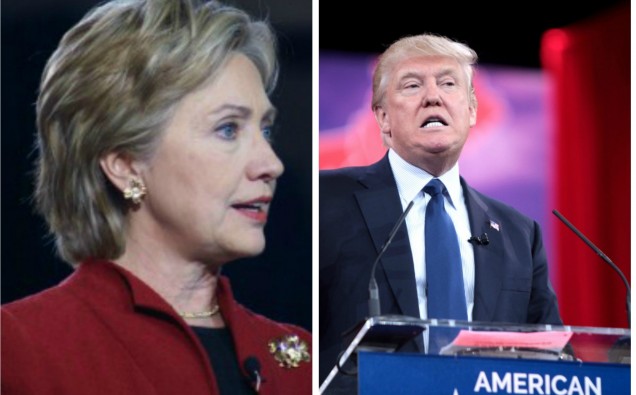
Positions espoused by presidential candidates on immigration issues and rhetoric on inclusion or exclusion of communities are among top concerns shaping opinions of Asian Americans in the unusually divisive 2016 election year.
A survey released by Asian Americans Advancing Justice, Asian Pacific Islander American Vote, and AAPI Data finds that “exclusionary rhetoric alters significantly the way Asian Americans will vote and how they view candidates.”
Likely Democratic candidate Hillary Clinton has the highest favorable (62%) views in contrast with presumptive Republican nominee Donald Trump with 61 % unfavorable views among Asian voters.
Asian Americans comprise diverse communities from East Asia, Southeast Asia and South Asia, and have been among high achievers, both economically and academically. They also hail from diverse cultural backgrounds. If survey findings hold true in the months ahead, they may contribute significantly to election outcome.
The 2016 Spring Asian American Voter Survey, which was conducted by AAPI Data, polled 1,200 Asian American registered voters, and reflects political trends within the Asian Americans, who constitute 6 percent of the total U.S. population.
Titled “Inclusion, Not Exclusion” the report demonstrates that “divisive rhetoric, particularly anti-Muslim and anti-immigrant sentiment,” caused more than 40 percent of Asian American voters to state that they would not vote for a candidate who expressed those views.
“The survey shows that Asian Americans are paying close attention to political discourse, and will not vote for a candidate expressing exclusionary rhetoric that only serves to separate communities. Anti-immigrant and anti-Muslim language will not win over Asian American voters,” said Mee Moua, president and executive director of Asian Americans Advancing Justice | AAJC.
“Candidates on both sides of the aisle need to pay attention to our community,” she added, “but our survey continues to show that the majority of Asian American voters have not been contacted by political parties in the past year.”
Releasing the findings, the AAJC said as the Asian American electorate continues to grow, the group stands to play a significant role in political races at the national, state, and local levels. “Voter outreach and education by nonpartisan organizations remains critical and 2016 is poised to be the largest mobilization effort we have seen for the AAPI community,” said Christine Chen, executive director of APIAVote. “The survey shows key problem spots where Asian American registered voters feel that the political system is not responsive to their needs. Greater investments are needed from the campaigns and parties.”
The survey also indicates that a significant number of Asian American voters have shifted toward identifying as Democrat over the last four years, although a large proportion of the community continues to identify as Independent, the organization said. “The Republican National Committee’s Growth and Opportunity Project signaled an interest in outreach to Asian American communities and may have partly succeeded in 2014,” said Karthick Ramakrishnan, professor at University of California Riverside and director of AAPI Data.
“But, harsh rhetoric by several candidates in 2015 and 2016 seems to have eroded those again and, indeed, might have made the situation even worse.” The survey data also provide a clear snapshot on how Asian American voters feel about a number of different issues. The areas of concern of Asian American voters reflect the concerns held by all voters on national issues, including economic security, immigration, gun control, and the threat of terrorist attacks.
With regard to issues of importance to Asian American voters, which include jobs and the economy, education, health care, and the environment, Democrats are viewed as doing a better job. It is important to note that on the issue of the threat of terrorism, 27% of Asian American voters view Republicans as doing a slightly better job, the survey finds.
Political trends found in the survey indicate that Donald Trump has the highest net unfavorable view among Asian American voters. (19% favorable-61% unfavorable, compared to 41% favorable-56% unfavorable among the general population)
Democratic Hillary Clinton has the highest net favorable view among Asian American voters. (62% favorable-26 Bernie Sanders struggles to gain recognition among Asian American voters (48% favorable, 22% unfavorable, and 30% with no opinion).
Senator Bernie Sanders, who has been campaigning intensely against Democratic rival Hillary Clinton, struggles to gain recognition among Asian American voters (48% favorable, 22% unfavorable, and 30% with no opinion).
Another interesting feature of the survey tells that Asian American voters are progressive on most issues, including the Affordable Care Act, gun control, environmental protection, and increasing government spending to make higher education affordable.












